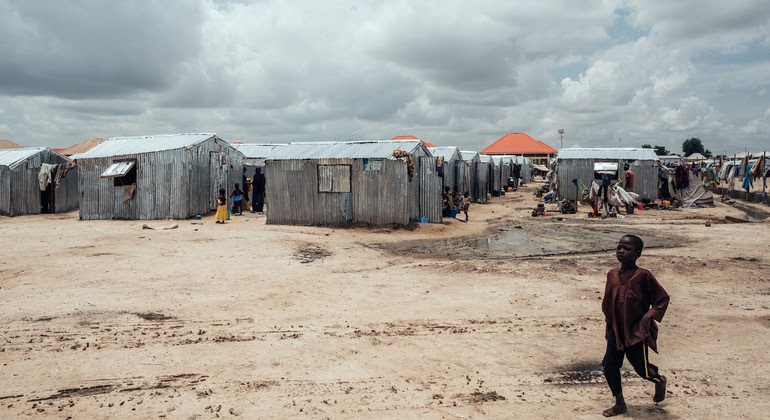Ongoing Conflict In Northeast Nigeria Has Killed More Than 300,000 People
The 12-year-old conflict in the region has resulted in nearly 350,000 deaths, with 314,000 indirect causes.

A new report by the United Nations Development Programme (UNDP) has revealed that the conflict in Northeast Nigeria has led to nearly 350,000 deaths.
The report titled “Assessing the impact of conflict on development in north-east Nigeria” projected that by the end of 2020, the conflict would have resulted in nearly 350,000 deaths, with 314,000 of those from indirect causes.
Most of the casualties, about 324,000, according to the report, are said to have been children below the age of five.
“Young children, who are especially vulnerable to malnutrition and disease from a lack of clean water, are hit hardest,” the report stated.
“We estimate that more than 90 per cent of conflict-attributable deaths through 2020, about 324,000, are of children younger than five. With another decade of conflict, that could grow to more than 1.1 million.”
The UNDP study, which is part of its work on conflict prevention, peacebuilding and responsiveness, also highlighted that Boko Haram attacks have led to massive internal displacement in the region.
“More than 1.8 million Nigerians are displaced in Adamawa, Borno, and Yobe states, with the vast majority (nearly 1.5 million) located in Borno.”
It added that in camps and host communities, internally displaced persons (IDPs) often live in poor conditions and lack access to adequate food and services.
“While some IDPs prefer to stay within Nigeria, others cite cost and a lack of a social network in destination countries as barriers to leaving.”
According to the report, more than 280,000 Nigerians have registered as refugees in Cameroon, Chad, and Niger, with the majority having fled violence in Nigeria’s Northeast.
“Conditions for refugees in these bordering countries are often worse than those of IDPs. While many of the displaced would like to return home, insecurity remains a major barrier. Many of the displaced have been displaced more than once.”
As part of the report concludes, it stated that a scenario in which the conflict continues through 2030 is one where progress is stalled for another 10 years.
“More than half of the population will remain in extreme poverty – 2.7 million more people than projected in the absence of conflict. Over 1.1 million children will die unnecessarily, and nearly 40 per cent of children under five will suffer from malnutrition.”
The conflict will also lead to a loss of $150 billion in economic activity, setting the region back for decades to come, the report said.
The objective of the report commissioned by the UNDP in partnership with the Government of Nigeria is to become a valuable resource for understanding and working around conflict to foster the process of stabilisation, peacebuilding and recovery in the region.
Support Our Journalism
There are millions of ordinary people affected by conflict in Africa whose stories are missing in the mainstream media. HumAngle is determined to tell those challenging and under-reported stories, hoping that the people impacted by these conflicts will find the safety and security they deserve.
To ensure that we continue to provide public service coverage, we have a small favour to ask you. We want you to be part of our journalistic endeavour by contributing a token to us.
Your donation will further promote a robust, free, and independent media.
Donate HereStay Closer To The Stories That Matter




